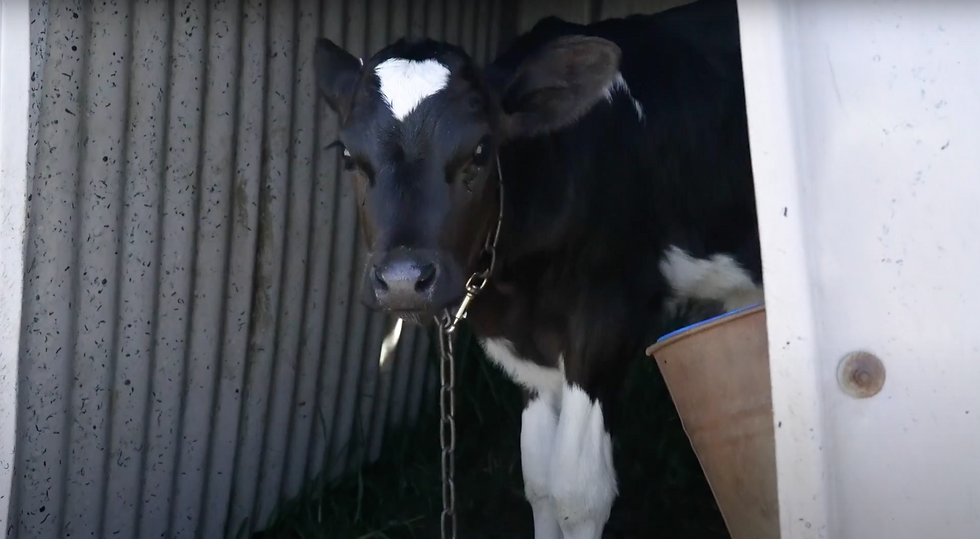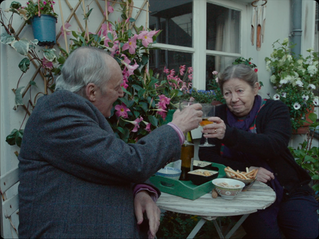Dominion
- Jonny Rogers
- Oct 27, 2021
- 3 min read
Chris Delforce, 2018

Sir Paul McCartney famously said that “If slaughterhouses had glass walls, everyone would be vegetarian.” I have spoken to many committed carnivores who concede this sentiment, and yet are unable or unwilling to change their habits. For anyone who watches Dominion, however, apathy is no longer an option.
Compiled of footage from drones and hidden cameras, the documentary aims to expose the state of human-animal relations in the contemporary world, focusing on meat and dairy production, fashion, experimentation and entertainment in Australia. And yet, in a year that also saw the release of Hereditary, Suspiria, and A Quiet Place, Dominion is 2018’s most unsettling horror film -- and certainly its most convicting.
Of course, no description of its content could ever do justice to the depravity it depicts; it is relentlessly bloody and unapologetically brutal. Powerless to interject, I listen to the screams of tortured animals as they are separated from their offspring; to workers laughing as their victims flail on the floor. I watch as chickens trample on the infected corpses of their neighbours; as half-conscious cows are lifted over pools of their own blood. I weep as chicks are funnelled to their deaths moments after hatching.

If there is any major fault to the film’s format, however, it's the 2-hour montage and how it can start to feel like a list, one that becomes more numbing with every successive execution. Then again, perhaps this is the film’s intention: the scale of violence committed to other creatures and the world around us exceeds all rational comprehension. As the conclusion points out, the amount of fish and other sea creatures killed each year is now so great it can only be measured in tonnes.
Nevertheless, Dominion shows us that horror doesn’t reside solely in our imagination: it is present in the systems and institutions that feed the world we inhabit. The film tears down the curtain of civility to reveal the unspeakable violence playing out behind closed doors; it reawakens us to the absurdity of what we are expected to condone as normal, natural or necessary.
Many of us have no choice but to live on insipid food prepared months ago in squalid conditions on the other side of the planet. But we also cherish pets descending from animals who spend their entire lives being impregnated; we adore and praise celebrities brandishing the skins of animals that our grandchildren will only ever encounter in history books.

In fighting against an industry all-too-familiar with the power of blades, bolt guns and blunt instruments, cameras are the activist’s most powerful weapon. Earlier this year, the French government strengthened laws to prevent people from taking pictures and recording footage in slaughterhouses; in some US states, this activity is already criminalised. These ‘ag-gag’ laws -- those which enforce punishment for camera-wielding whistleblowers and activists -- testify, even if implicitly, to the power of horror to disrupt the powers that be.
Like its predecessors -- Shaun Monson’s Earthlings and Unity, Nikolaus Geyrhalter’s Our Daily Bread and Frederick Wisemen’s Meat -- Dominion wields the power of filmic realism to stir us into action; employing a sanguine aesthetic of disgust to upend our comfort with the way things are. Its noisy and low-resolution images do not detract from its message, but reinforce the hiddenness of the world it depicts.
Despite its harrowing content, however, Dominion is not overwhelmed by cynicism: the filmmakers are evidently motivated by a conviction that another world is possible, even yet lying just beyond our grasp. As the credits begin to roll, we are gifted a few more scenes: not of torture, but of mercy, as some animals are rescued and rehabilitated by members of the production crew.
As such, Dominion leaves us at the crossroads: now apprised of the violence you once endorsed, can you continue in ignorance? Will you turn back to the horror of the world we have created, or towards a new world of grace, unity and compassion?









Comments